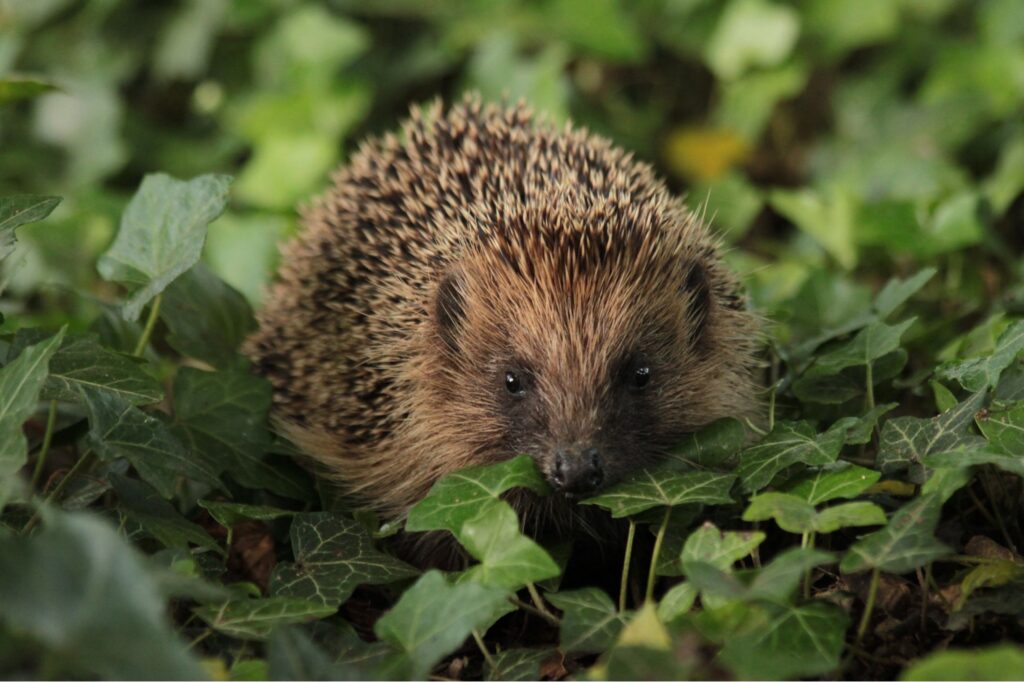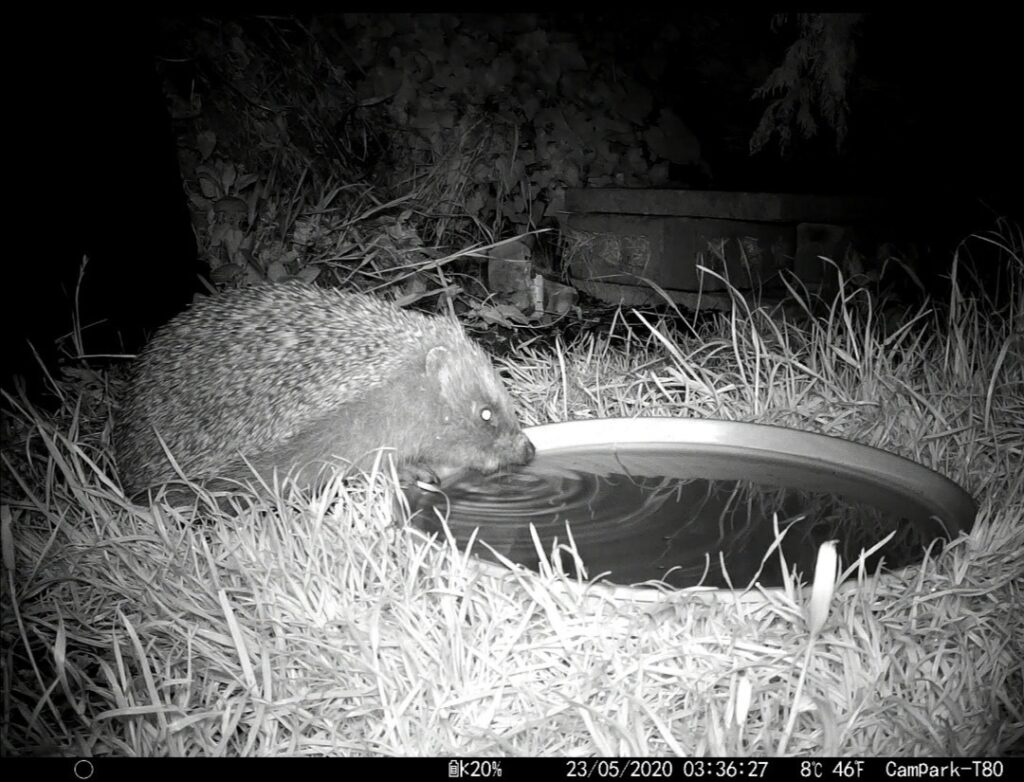
Hedgehogs are beloved little creatures – they’ve been voted the UK’s favourite wild animal several times and are an iconic symbol of British wildlife.
However, hedgehog populations in rural areas have decreased by up to 75% since the millennium – which means we need to act now. Hedgehogs are faring slightly better in urban areas where the decline has slowed, and small increases in population are being observed. Though the historic and consistent decline means numbers are building up from a very low starting point.
Hedgehogs are an important indicator species, so when they begin to struggle, it’s a sign that many other species – whether that’s insects, birds, dormice or even us humans – are likely to be in trouble too.
We all need to do what we can to protect our native wildlife and do more to care for the environment as a whole – hedgehogs can inspire us to do that.
Following the Five Domains, there are lot of things we can do to help and encourage hedgehogs – both at home and at school!
Normal behaviours & Interactions
- Give them room to roam with hedgehog highways! Make 13cm x 13cm square gaps at the base of fences and walls – hedgehogs roam up to a mile or more a night in search of food, nesting sites and mates, so linking up gardens and green spaces with these gaps is one of the best things we can do to help them out.
Nutrition
- Make sure there’s enough food available! Hedgehogs eat a variety of insects, worms and grubs, so having wildlife-friendly features in your garden – a log pile or compost heap – is great way to help hedgehogs. You can also supplement their natural diet by offering meaty cat or dog food, or a dish of kitten biscuits.
- Provide water for wildlife! Hedgehogs will really appreciate shallow bowls of fresh water placed around gardens and green spaces. Fresh, ground-level water is often scarce, especially in hot weather or when the ground is frozen so offering water all year round will really help them and other wildlife too. If you put a few large pebbles in the bowl – bees and butterflies can also safely take a drink.
Environment
- Provide a safe environment for hedgehogs! Create a wildlife garden, or wild corners and edges with unmown grass, log piles, wildflowers, bug hotels and leaf piles. Leaving gardens and school grounds a bit untidy and wild is great way to make sure hedgehogs have somewhere to shelter, nest and in the winter, hibernate. It’s also a place they will forage for natural food – so a brilliant way to help them out!
Mental state/experience
- Think hedgehog! Hedgehogs are sensitive creatures, so it’s important not to disturb them in the wild.
If you ever accidentally uncover a nesting, sleeping or hibernating hedgehog, replace all bedding materials and leave it well alone.
Take care if filming or photographing them – use wildlife cameras wherever possible, keep your distance, no flash photography or loud noises and never disturb sleeping or nesting hedgehogs.
Health
- If you find a hedgehog you are concerned about, we suggest following our first aid advice.
When ill, hedgehogs lose heat very quickly, so it’s important to carefully place them in a box indoors, with a source of gentle heat (unless it’s a very hot day). Make sure there is room for them to move away from the heat if they get too warm.
Put the box somewhere quiet indoors and offer meaty cat or dog food and fresh water then call us as soon as possible on 01584 890 801 for further advice and the numbers of local independent rehabilitators.
Visit The British Hedgehog Preservation Society (britishhedgehogs.org.uk) for more information, advice and hedgehog activities.
Child-friendly resources can be accessed via; Kids Zone – The British Hedgehog Preservation Society (britishhedgehogs.org.uk)

